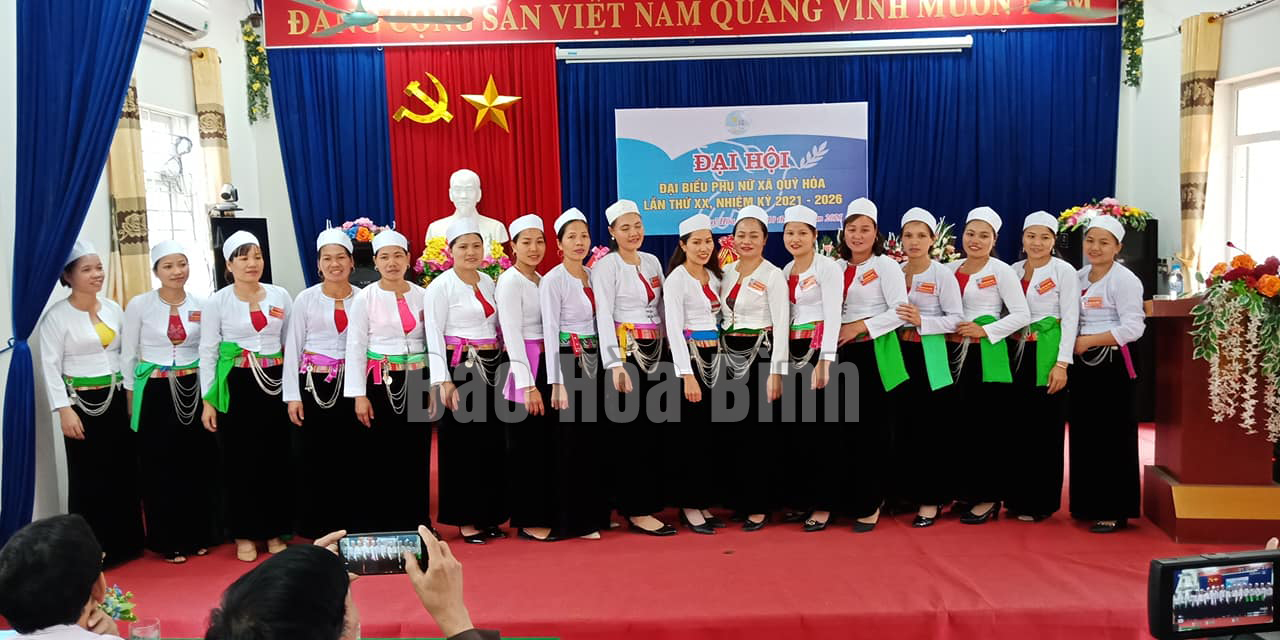


(HBO) – Quy Hoa commune in Lac Son district of Hoa Binh province is in the paddy harvesting season. In terraced fields, local residents are busy harvesting paddy.
Bui Van Dat, Chairman of the People’s Committee of Quy Hoa commune, said over the past years, the commune’s Party Committee and People’s Committee have instructed locals to preserve traditional culture, adding that the work needs patience.

Local residents in Quy Hoa commune, Lac Son district, often put on traditional dresses during festivals or major events.
Residents in Quy Hoa have preserved traditional customs and habits of the Muong ethnic group such as their language, traditional costumes, gongs, stilt houses, and funeral and wedding rituals.
Quy Hoa has more than 400 gongs of different types, which are used during the traditional Tet festival, National Day and other major festivals.
It has maintained at least one club of "sac bua” (gong playing) in each hamlet, even two-three clubs in some hamlets.
Weaving has also been restored in the locality, mainly serving daily needs of locals. Weaving products are also sold to visitors.
"Khai ha” is one of the unique festivals in Quy Hoa, which is held on the eighth day of the first lunar month to pray for favourable weather conditions and bumper crops.
Local residents only go to work following the festival as they believe that Gods and ancestors protect them after they receive offerings, said Bui Van Nhiem, head of hamlet Thung 2.
Dat said Lac Son district has implemented a project restoring traditional culture in Quy Hoa commune to serve another project on local tourism development.
The district aims to optimise Quy Hoa’s potential and ensure the harmony between development and the preservation of tangible and intangible values.
Quy Hoa has planned to establish a working group that is tasked wish restoring the traditional culture, while stepping up the communication work to raise public awareness of the work.
The Party Committee and People’s Committee of Quy Hoa commune have created conditions for locals to promote exchanges, helping to raise the pride of traditions among young generations./.
At the end of May, the Hoa Binh Provincial Ethnic Arts Troupe organized a series of performances for residents in Region 2 and Region 3 communes across the province. Bringing art to ethnic communities in remote, isolated, and especially disadvantaged areas has become a meaningful activity. These are not merely artistic performances but also journeys to disseminate cultural values, enrich spiritual life, and contribute to preserving the cultural identity of ethnic minorities.